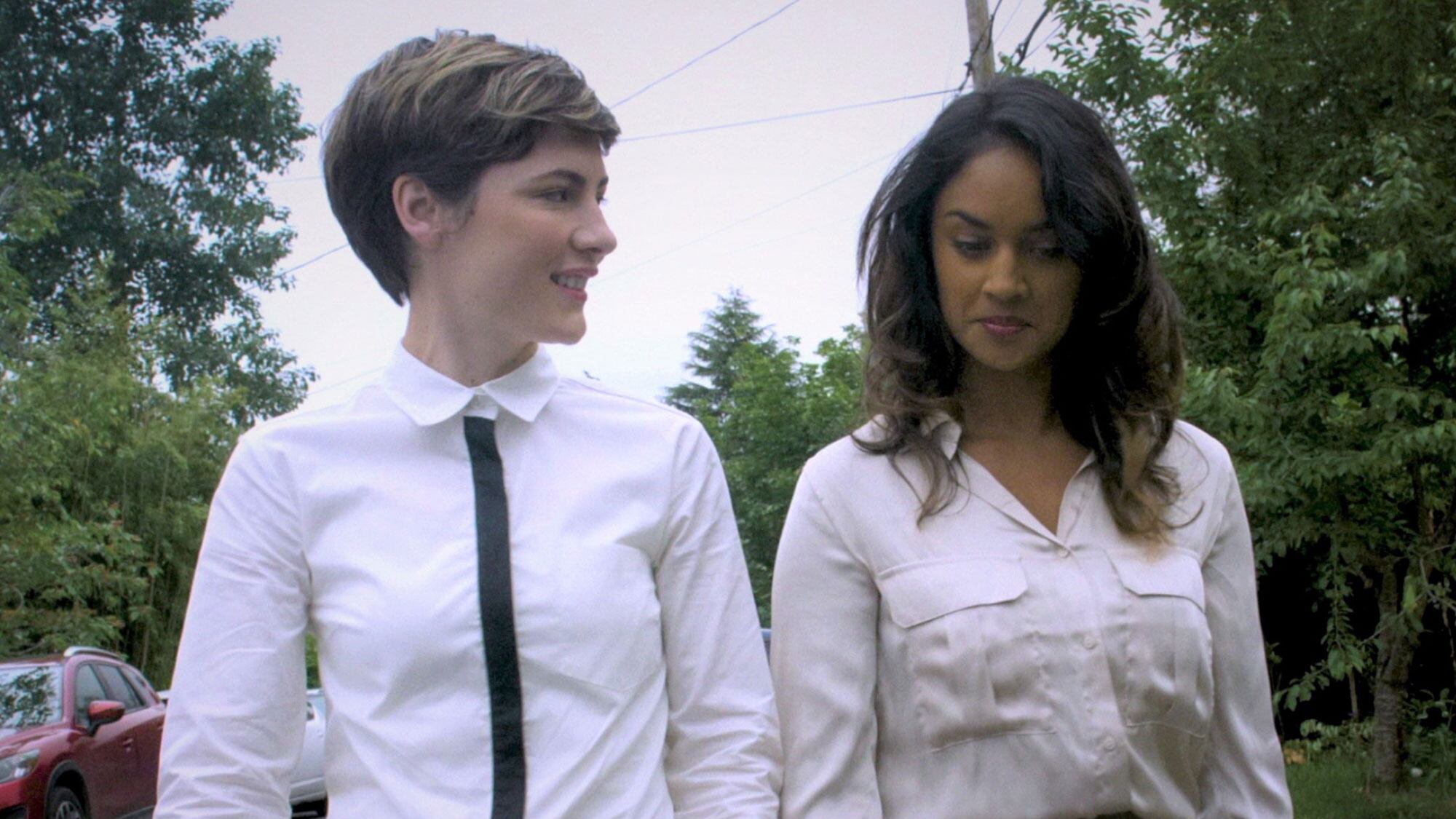"I didn't vote for Trump," says Portland filmmaker Shilpa Sunthankar. "And I don't agree with those that did. But I know many. They're good people and I love them and they're reasonable."
With the insurmountable political divide in our country, hearing a word like "reasonable" getting thrown around to describe the opposition can be jarring. But Sunthankar is being earnest.
"There's been a fracture," she says. "People need to re-learn how to be, how to live with the other side." Her new short film, Working Lunch, is an example of what it could look like if the two camps started to rebuild trust.
The eight-minute tale, which had its U.S. premiere at New York's longest-running screening series, FilmMakers New York, starts with two women going out for Indian food and discovering that the business's window has been vandalized with "Hail Trump" graffiti. The friends, one Indian-American and the other a member of the LGBTQ community, proceed inside and learn another patron is a Trump supporter, resulting in a moment of tension. It's an interaction that could seemingly tip either direction.
Sunthankar was inspired to author the script following Trump's inauguration and hearing reports of increasing vandalism. "There was graffiti everywhere—on bathrooms, on churches, on restaurants. Then six months later, people started getting shot," Sunthankar recalls. "There were a solid two weeks where I was trying to sleep, but I was up in bed. And one thing that was keeping me up was the major proliferation of hate."
She wrote the first draft of the script by hand into a notebook during one of those restless nights. "It was really important to me that Working Lunch was a really sweet little dense nugget of goodness, but not too sugary," she explains. "Succinctness was important to me."
The film will get its West Coast debut Dec. 12 at NW Film Center's Whitsell Auditorium, along with two of her other shorts, Company of Thieves (2011) and Biography of an American Hostess (2004). Sunthankar, who is Indian-American, grew up as something of an ethnic outsider in a small town in Colorado. "It was very Midwestern," she says. Perhaps because of that, her films tend to explore themes of cultural identity.
For instance, Biography of an American Hostess is a story of a young Indian-American woman (played by Sunthankar) who works at an Indian restaurant. We observe her daily interactions with customers, answering questions and fending off uncomfortable compliments. At one point she disappoints an Indian patron who speaks to her in a different language, one in which he naturally assumes she must be fluent. The film is eye-opening and funny, and well worth the 18 minutes on Vimeo. Also of note: The cringe-worthy customers were inspired by those Sunthankar encountered when employed by the now-closed Plainfield's Mayur, which used to be on Southwest 21st Avenue near Providence Park.
"It took me a while to figure out what the heck my work means," Sunthankar says. "And it's all still a work in progress. We never really know anything. But I find that thematically what I really seem to be attracted to examining is how people connect and how they disconnect. Being Indian growing up in Colorado, I find that the most valuable experiences I've had is when people reach out and connected to bridge gaps between cultures—especially right now in a time when communities, cultures, religions, races are feeling so disparate."
Sunthankar is currently seeking funding for her next project called Continental Divide. The film is a full-length thriller that takes place along the New Mexico-Mexico border, but fits into her larger body of work by further exploring the theme of cultural identity.
SEE IT: (Dis)/Connect: The Short Films of Shilpa Sunthankar screens at NW Film Center's Whitsell Auditorium, 1219 SW Park Ave., nwfilm.org, on Wednesday, Dec. 12. 7 pm. Director Shilpa Sunthankar will take part in a post-film discussion.

